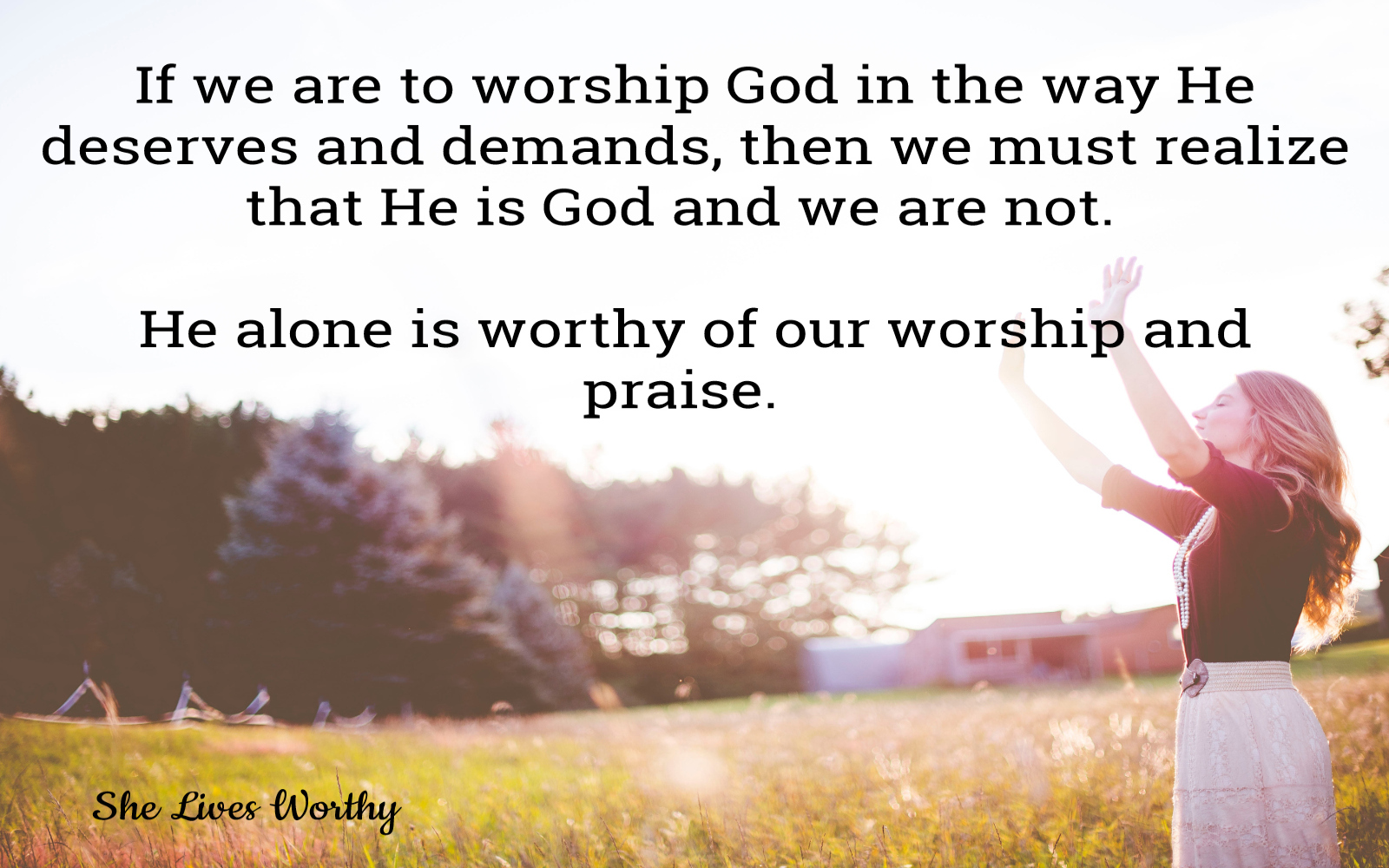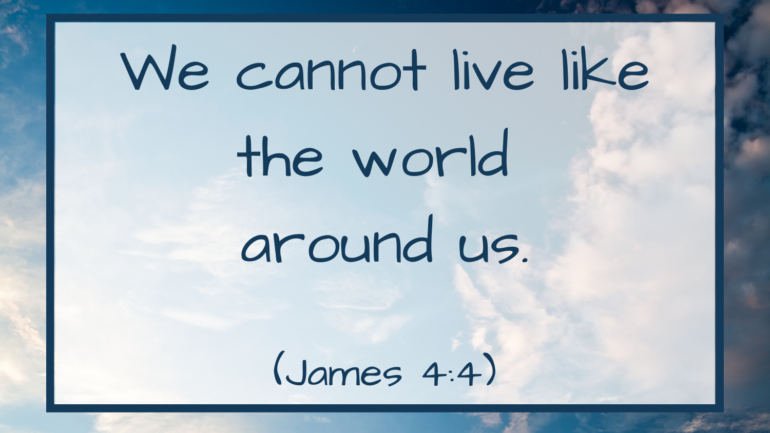Let’s stop treating worship like we’re sending an air-mail up to God, hoping that He gets it.
George C. Quillin
Sometimes as we’re listening to a sermon or sitting in a Bible study, we hear something that totally changes our perspective. Recently, my husband made the statement above as he taught Sunday school, and it really made me stop and think.
How often do I sit in the Sunday morning service sending my worship up towards the sky as if God’s out there somewhere? How often do I forget that I’m always in the presence of God—not just at church but everywhere? If I really embrace the fact that God is with me right here right now, will it change the way I live? Will it change the way I worship?
If we are to worship God the way He deserves, we must understand what worship is. We must also think about how we worship.

What is worship?
According to Dictionary.com, worship is defined as “reverent honor and homage paid to God,” or the “formal or ceremonious rendering of such honor and homage.” The word homage means “respect or reverence.” To worship God, then, means to show Him honor, respect, and reverence through our actions and attitudes.
I’ve also heard worship referred to as “worth-ship.” It means recognizing God’s true worth or value, and acting accordingly. There’s also an element of realizing who we are in comparison to who God is. Or rather, it’s recognizing who we are not. If we are to worship God in the way He deserves and demands, then we must realize that He is God and we are not. He alone is worthy of our worship and praise.
25For great is the Lord, and greatly to be praised,
1 Chronicles 16:25-26
and he is to be feared above all gods.
26 For all the gods of the peoples are worthless idols,
but the Lord made the heavens.
We also must worship God the way He commands rather than creating our own methods of worship. So, what does the Bible say about how God wants us to worship Him?
How should we worship?
In 1 Chronicles 16, the Israelites, under the leadership of King David, are celebrating the Ark of the Covenant being brought to Jerusalem. David writes a song of praise to be sung on that occasion, which actually tells us a lot about how to worship God. I’ve identified from this passage eight ways that we can worship God.
1. Thanksgiving (v. 8a, 34)
“Give thanks to the LORD, for he is good” (v.34). We can always find something to be thankful for. When we give thanks to God for the things He has given us, we are acknowledging His character—His goodness, love, mercy, and grace. We are also humbling ourselves before Him by acknowledging our need for Him rather than taking His blessings for granted.
2. Praising God (v. 8b-9, 24)
“Make known His deeds…declare His glory” (v.8, 24). We are commanded to praise God by sharing with others what He has done (His deeds) and who He is (His glory). This can be done through evangelism or in every day conversation as you share with others what God is doing in your life. It’s also important to praise God directly through our prayers, telling Him what we appreciate about His nature or works.
3. Singing (v9a, 23, 33)
“Sing to him, sing praises to him” (v.9). Singing is perhaps what most people think of when they think about worship. Singing is a great way to praise God. If we have trouble knowing what to say, we can borrow words from the great hymn writers. Music can also be very uplifting, helping us to get in the mood to worship.
4. Seeking God’s Presence (v. 10-11)
“Seek his presence continually” (v.11). We often act as if God is out there somewhere. We may go hours or even days without really acknowledging God’s presence. However, God is always with us. If we are truly aware of God’s presence, it should lead to a continual attitude of prayer and praise.

5. Rejoicing (v.10b, 31-32)
“Let the hearts of those who seek the LORD rejoice!” (v.10). Joy is one of the Fruit of the Spirit, so it’s clear that believers are expected to rejoice. However, we often allow things to steal our joy. As we choose to be joyful in spite of our circumstances, we are expressing our confidence and trust in God, which is an act of worship.
6. Remembering God’s Wondrous Works (v.12-22)
“Remember the wondrous works that he has done” (v.12). I’m sure we can all look back over our lives and see God’s hand at work. Remembering the blessings and guidance that God has given us in the past can lead to praise and worship.
7. Recognizing God’s Character (v.27-29a)
“Ascribe to the LORD the glory due his name” (v.29). Sometimes we simply need to remember who God is. As we think about the attributes of God, such as His holiness, righteousness, mercy, goodness, etc., we can’t help but praise Him.
8. Bringing an Offering (v.29b)
“Bring an offering and come before him!” (v.29). A tangible way to worship God is by giving back to Him a portion of what He has given to us. We should give a regular tithe to our local church, as well additional offerings to special causes as we feel led by the Spirit. The concept of giving a tenth of your income is based on Old Testament principles. The New Testament doesn’t mention an amount, but does teach that we should give cheerfully and sacrificially.
Do you struggle like I do when it comes to worshiping God? As we become more aware of God’s presence in our lives, we should desire to worship Him more. These eight ways to worship God are easy to do regularly. Which of these can you incorporate into your daily life? Download this free printable to help you remember these “Eight Ways to Worship.”






Donna Miller
Love this Lydia! Worshipping God with our whole lives is a beautiful thing. ❤
Lydia
Thank you!